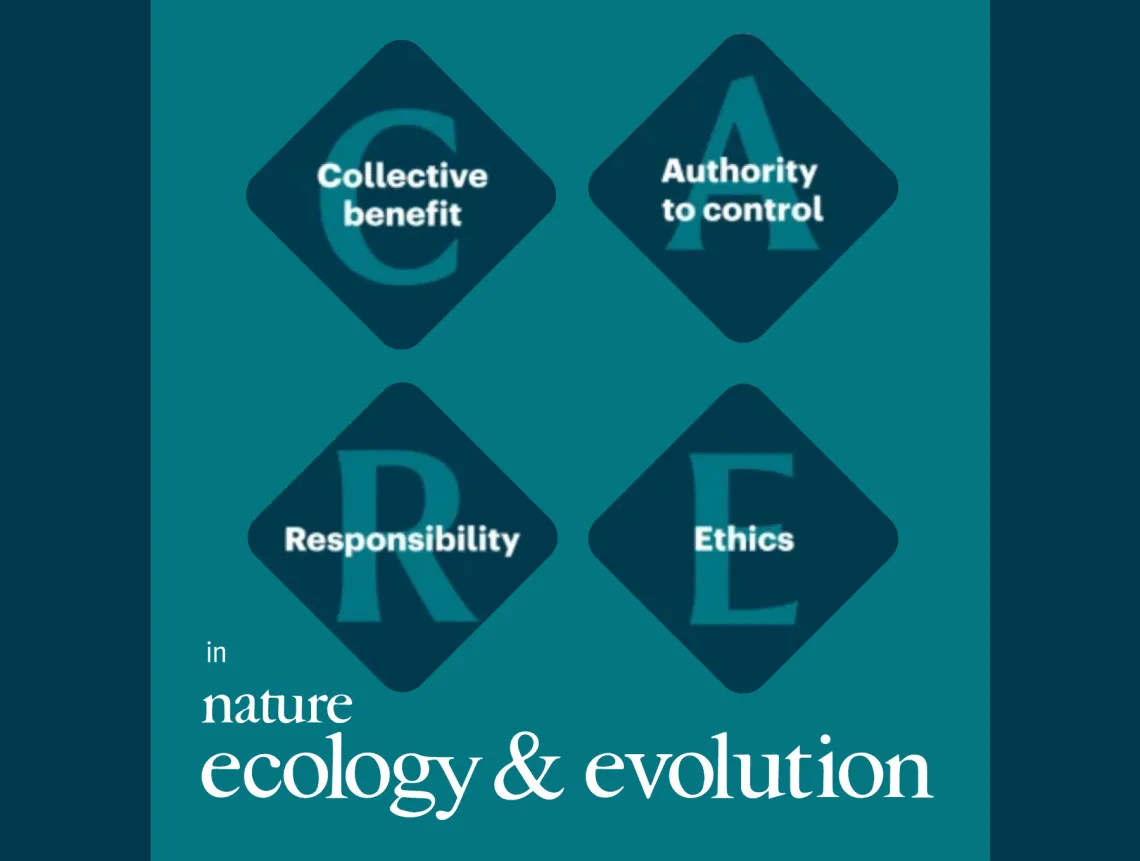Guidance on “Applying the ‘CARE Principles for Indigenous Data Governance’ to ecology and biodiversity research” Published in Nature Ecology & Evolution
A new paper by several members of the Global Indigenous Data Alliance and Collaboratory for Indigenous Governance details how to apply CARE Principles to ecology research.

A new Comment paper published in the journal Nature Ecology & Evolution highlights the importance of “applying Indigenous stewardship methods over traditional and contemporary knowledges” when it comes to data collected for the purposes of ecology research. The paper extends recognition of the types of information and knowledge that constitute Indigenous data and offers guidance for researchers on how to “include Indigenous Peoples in data governance to increase their access to, use of and benefit from data.”
The paper, authored by Udall Center and Mel and Enid Zuckerman College of Public Health researcher Lydia Jennings and her colleagues from the Global Indigenous Data Alliance (GIDA) and Collaboratory for Indigenous Data Governance, argue that:
Although engagement with data from Indigenous Knowledges has increased, most scientific training neglects the data rights, data relationships and ethics protocols that Indigenous communities have regarding their knowledge systems.
According to the paper, oversights in this regard are commonplace in ecology and biodiversity studies, which, it says, “often neglects to consider the ethics and responsibilities relating to the data and intergenerational data relationships we create about complex ecosystems.”
This neglect often takes the form of extractive “helicopter research” in which researchers collect data from Indigenous Peoples, leave to analyze and disseminate that data and often never again engage with the Indigenous experts involved in that work to share results or otherwise build capacity within those communities.
Educating ecology researchers on how to apply the CARE Principles for Indigenous Data Governance to their current research practices is a first step in rectifying the myriad problems caused by the misuse and abuse of Indigenous Knowledges and data in scientific research, the paper says.
The CARE Principles for Indigenous Data Governance were created and published by GIDA in 2019. They assert that research involving Indigenous Knowledges, data and specimens should provide Collective Benefit to the Indigenous rights-holders of that data, that Indigenous Peoples should have the Authority to Control their own data, and that such data should be collected and managed Responsibly and Ethically.
The CARE Principles were drafted to complement and enhance the FAIR Guiding Principles for scientific data, published in 2016, which argued that all data should be Findable, Accessible, Interoperable and Reusable.
Currently, only a handful of science organizations include implementation of the CARE Principles as a guideline or recommendation for research practices, however recognition of the importance of these principles is growing steadily amongst the scientific community over time – a process that the new paper asserts will lead to “intentional and collaborative partnerships and better grounded science.”
“By going beyond voluntary and aspirational guidelines, research partnerships increase in value and are rooted in community and intergenerational expertise,” the paper states, adding that “...Ultimately, the implementation of the CARE Principles will ground ecology and adjacent fields in more ethical ecological and data stewardship practices, infrastructures and technologies.”
To help researchers ground the implementation of the CARE Principles in their current research efforts, the Comment paper provides recommendations on how to apply the CARE Principles in ecology research and offers examples of these recommendations in practice. In doing so the authors demonstrate that the concepts presented in the publication aren’t just aspirational, but that this work is immediately actionable.
Relatedly, the Collaboratory for Indigenous Data Governance is now offering a new set of trainings for early career researchers working in all seven public institutions of higher education and tribal colleges in Arizona.
The fellowship program, dubbed Indigenous DataSET (Sovereignty and Ethics Training) is directed at training early career researchers in a variety of research areas on ethical data practices when working with Indigenous Peoples and their data.
The first cohort of 14 fellows has been recruited with another application process set to begin in Fall 2024.

